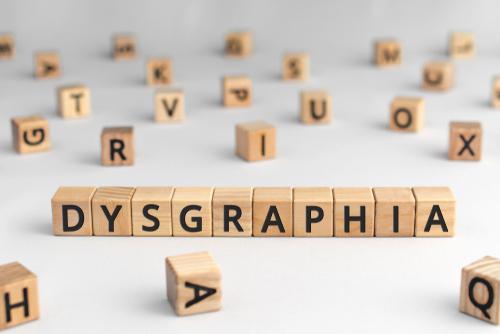Grammar practice Worksheets for 5-Year-Olds
9 filtered results
-
From - To
Grammar Practice Worksheets for 5-Year-Olds are designed to introduce young learners to core language concepts in a fun and engaging way. These worksheets cover essential skills such as identifying nouns, verbs, adjectives, and simple sentence structures. Perfect for early grade students, the worksheets utilize colorful illustrations, games, and exercises tailored to a 5-year-old's developmental level. They provide foundational grammar knowledge, fostering reading and writing confidence. Whether used in the classroom or at home, our worksheets make learning grammar enjoyable and effective, laying a strong foundation for future language skills. Free samples available to make learning grammar an effortless journey.
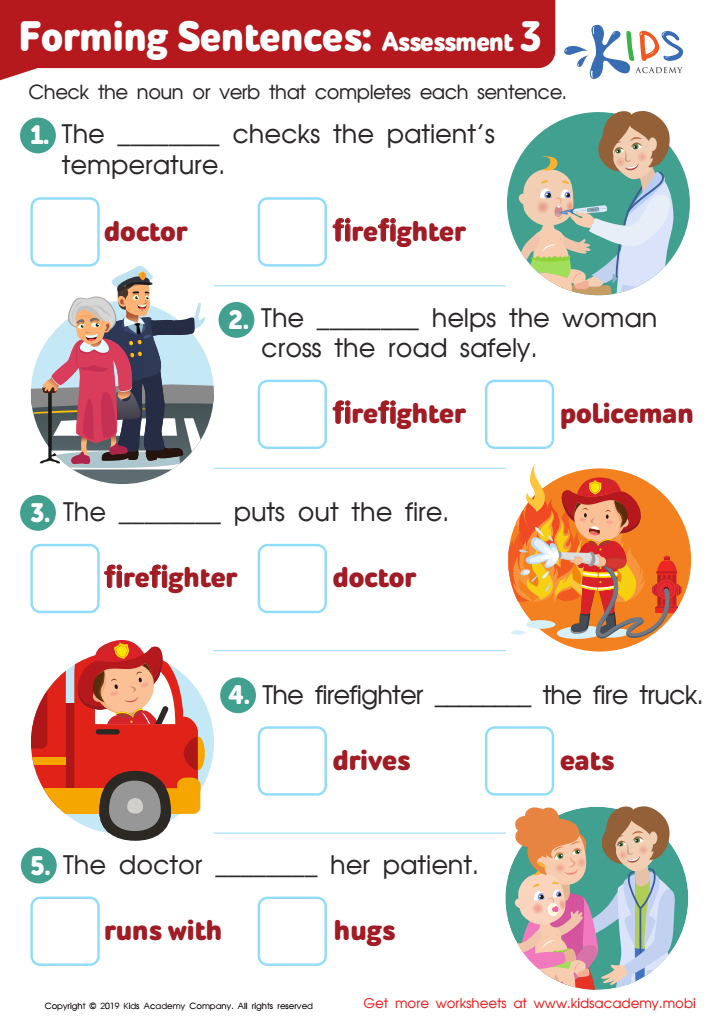

Forming Sentences: Assessment 3 Worksheet
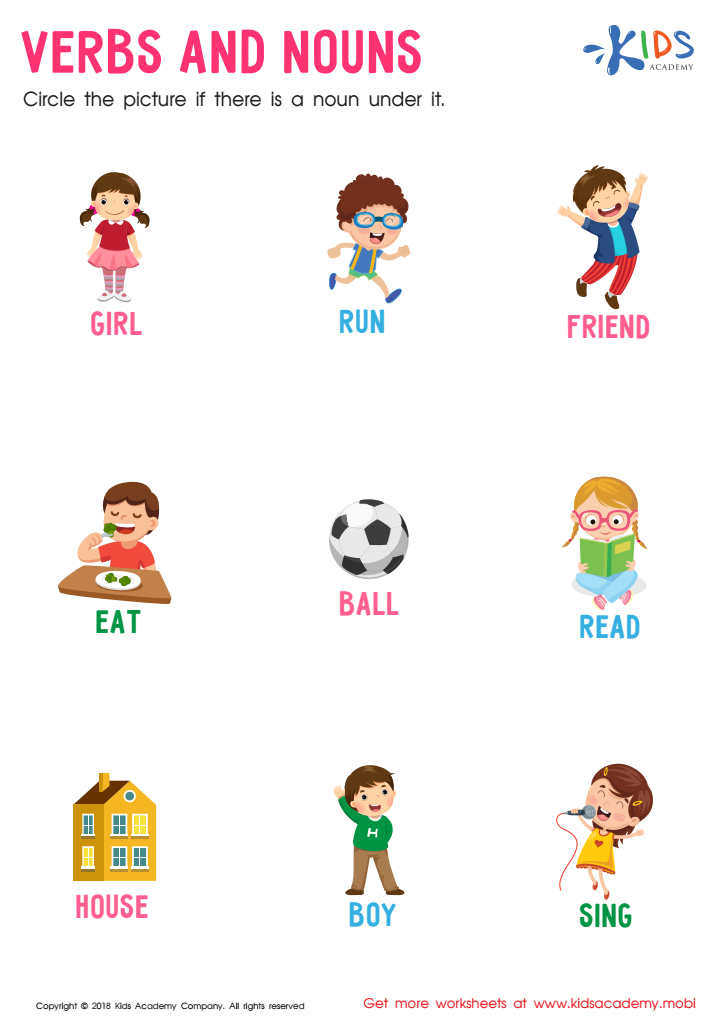

Verbs and Nouns Worksheet
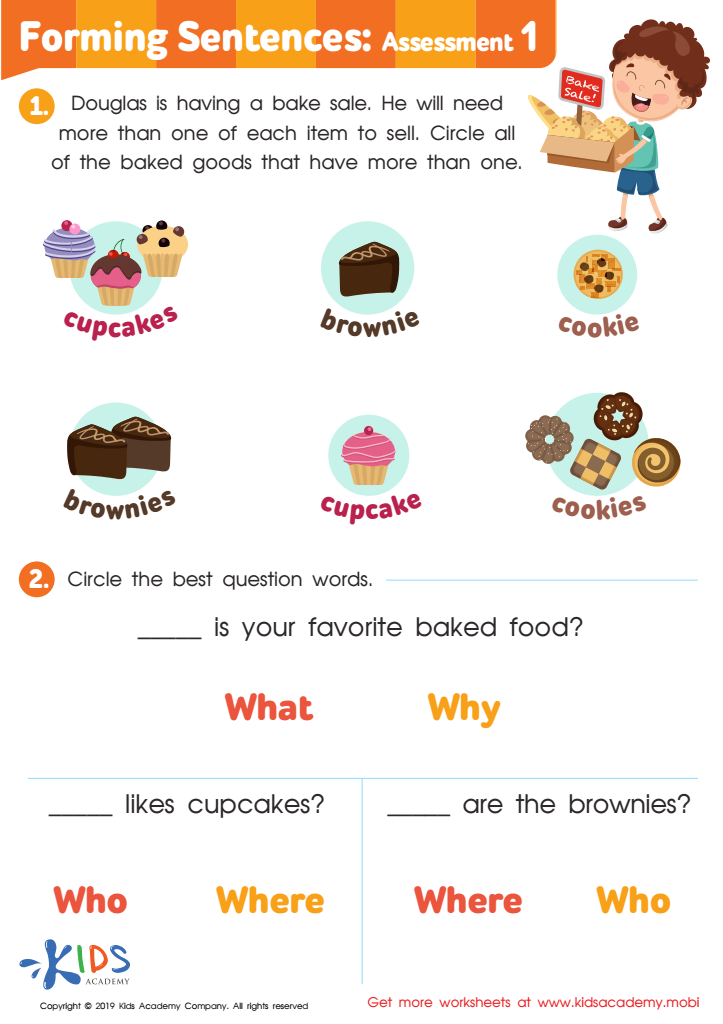

Forming Sentences: Assessment 1 Worksheet
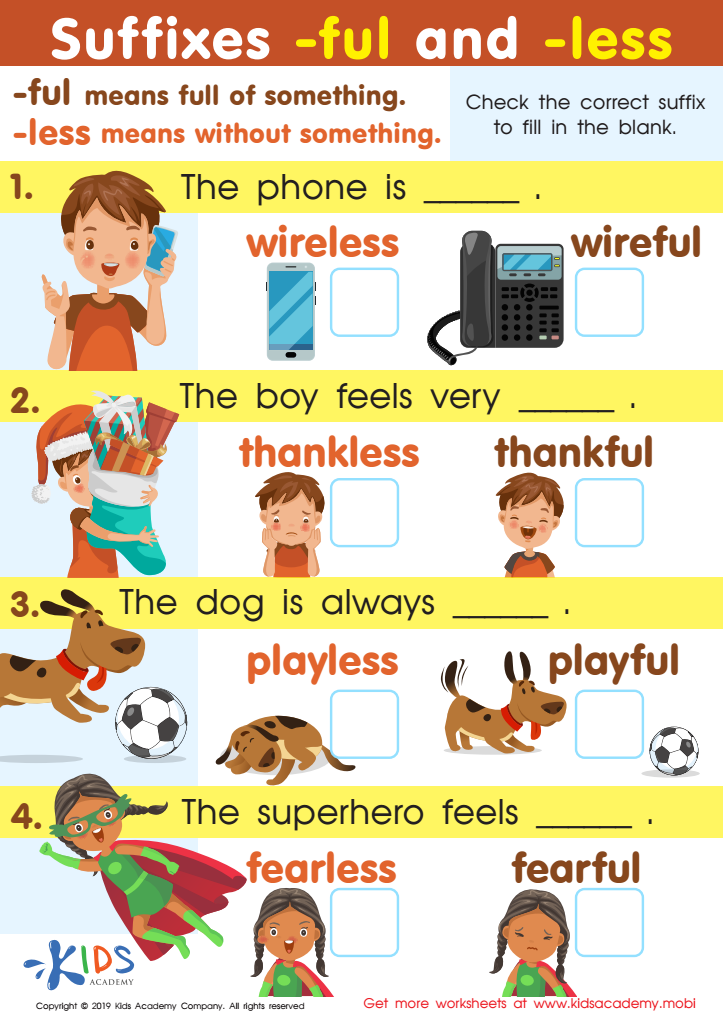

Suffixes –ful and –less Worksheet
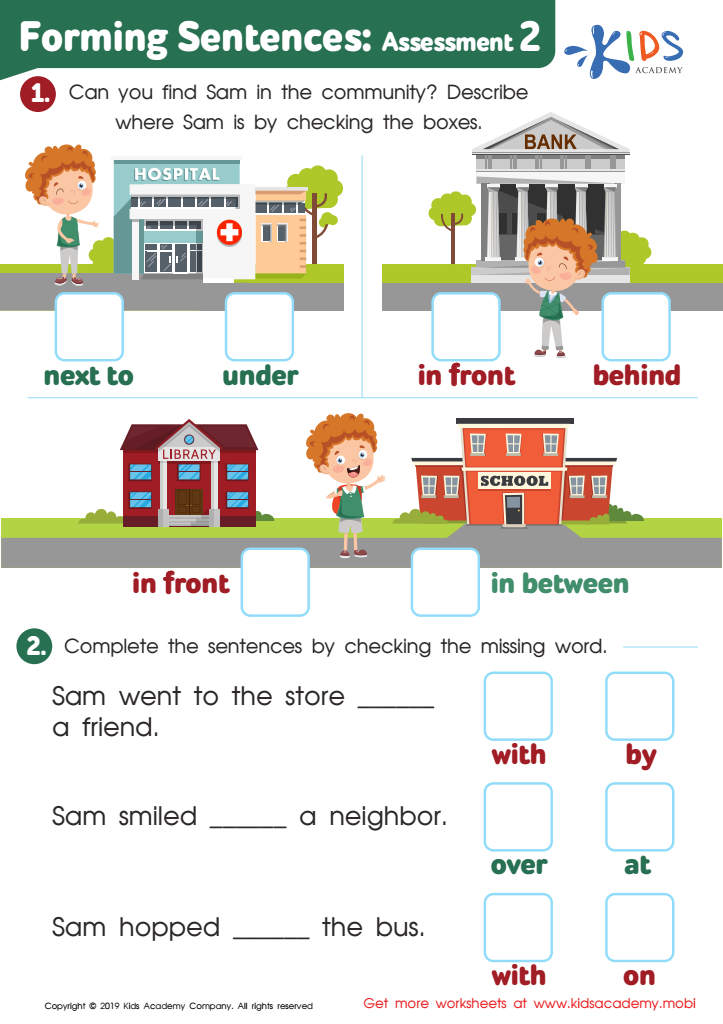

Forming Sentences: Assessment 2 Worksheet
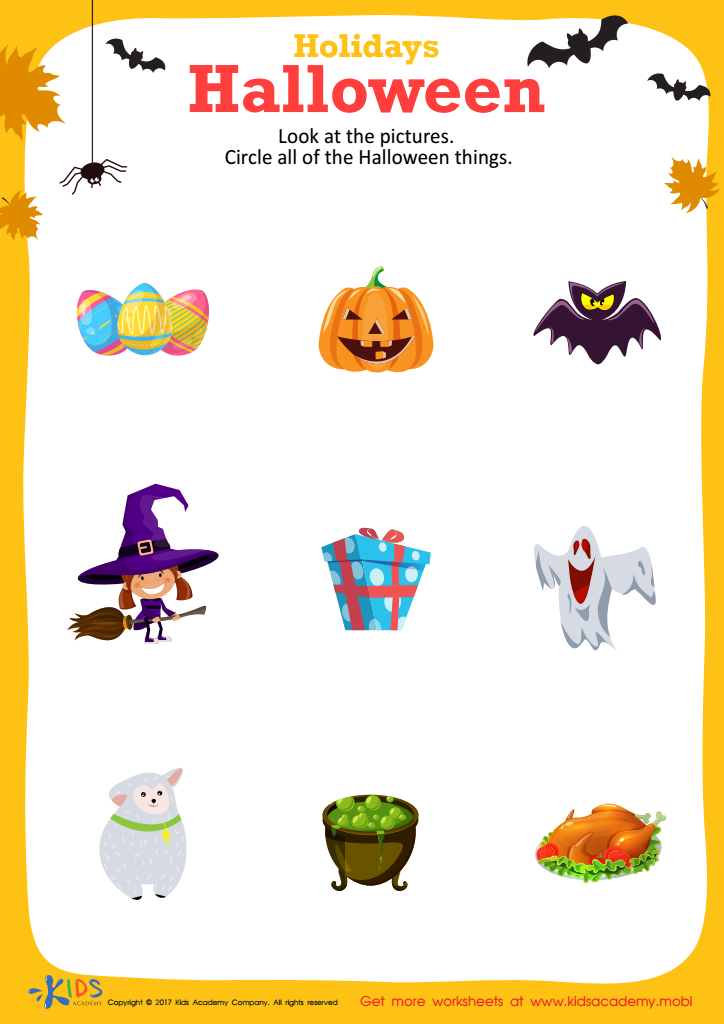

Halloween Holiday Worksheet
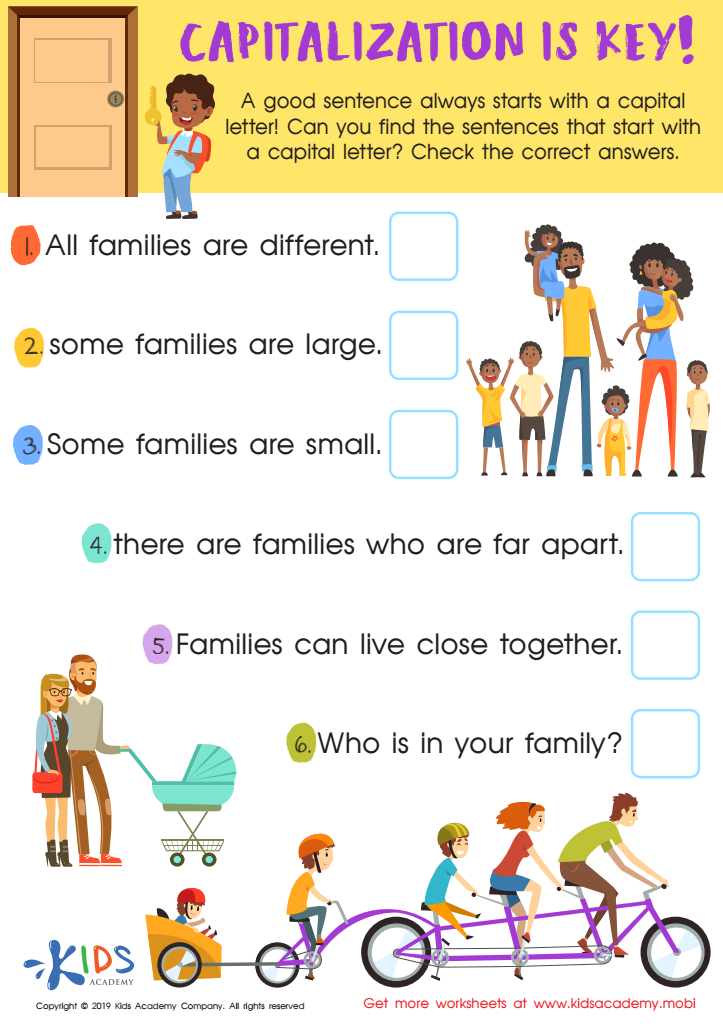

Capitalization Key Worksheet
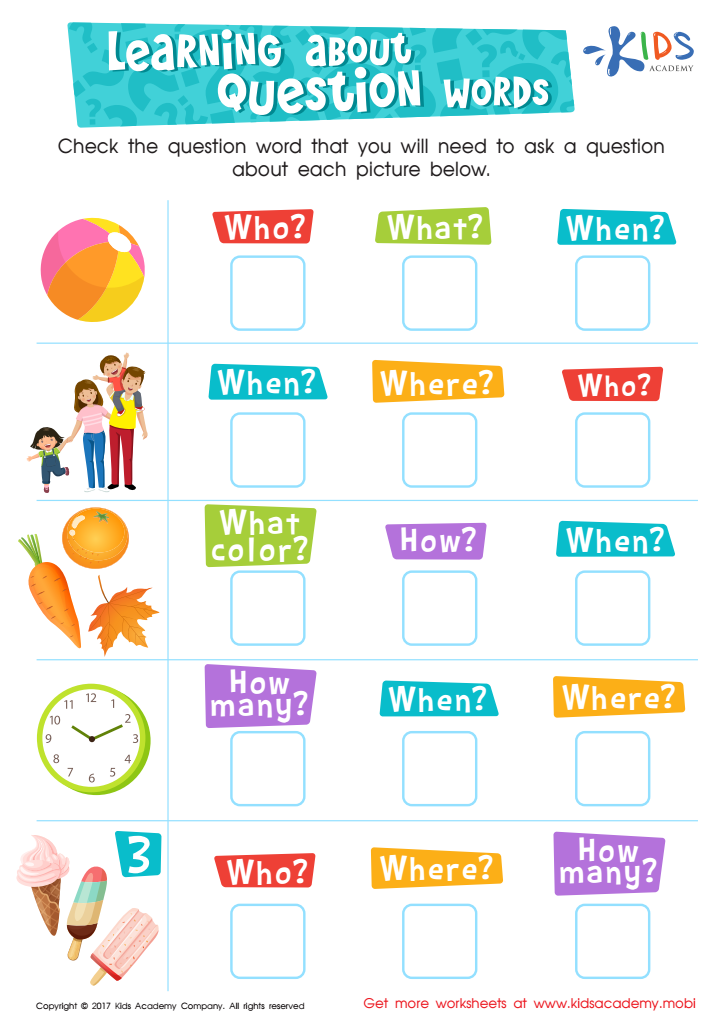

Learning about Question Words Worksheet
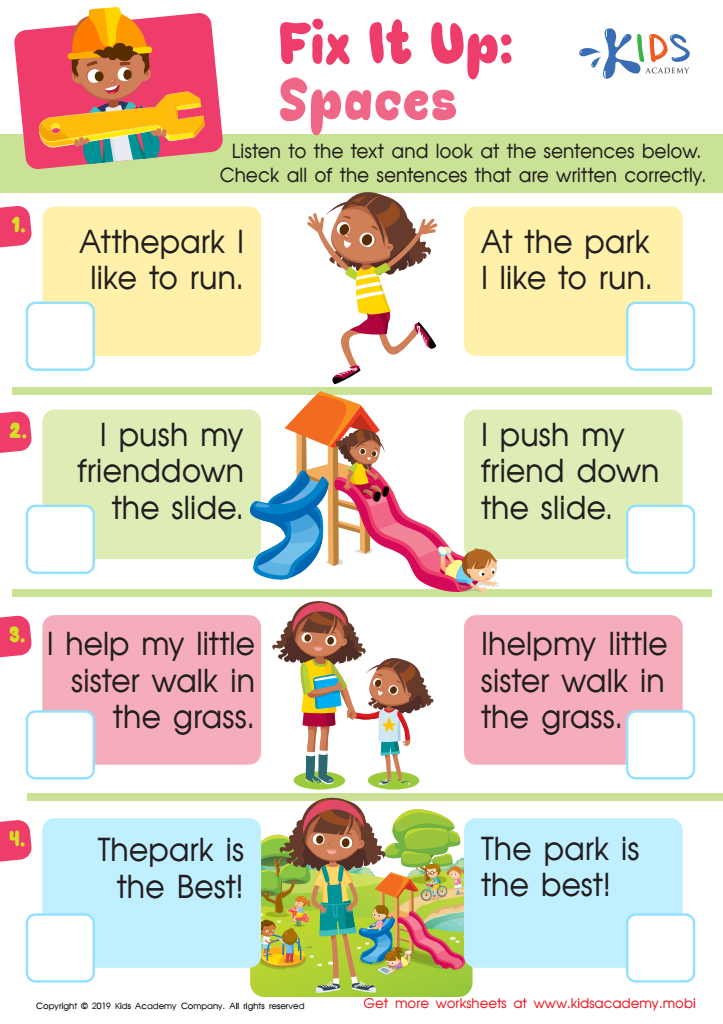

Fix Spaces Worksheet
Grammar practice for 5-year-olds is crucial for several key reasons that parents and teachers should recognize. Firstly, grammar lays the foundation for effective communication. At this age, children are expanding their vocabulary rapidly, and understanding basic grammar rules helps them form sentences correctly, making their speech clearer and more understandable.
Secondly, grammar practice supports literacy development. As children begin to learn to read and write, knowing how words fit together in sentences helps them comprehend stories better and express their ideas in writing with greater accuracy and creativity. Engaging with grammar early on also helps in recognizing word patterns and structures, which is beneficial for spelling and reading fluency.
Thirdly, strong grammar skills boost cognitive development. Understanding and applying grammar rules require critical thinking and problem-solving, which are essential cognitive skills. This practice enhances memory, attention to detail, and the ability to categorize and organize information, all of which are valuable across all learning areas.
Lastly, fostering good grammar from a young age builds confidence. When children can communicate their thoughts effectively and are understood by others, they feel more confident in social interactions and classroom participation. This positive reinforcement can encourage a lifelong love of learning and communication. Therefore, parents and teachers play a vital role in fostering these essential skills.

 Assign to My Students
Assign to My Students








